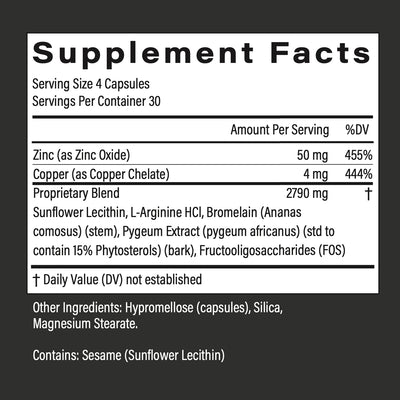Infertility affects many couples worldwide, often leading to emotional stress and unanswered questions. In recent years, genetic testing for infertility has emerged as a powerful tool to uncover underlying genetic causes, offering hope for many aspiring parents. This comprehensive guide delves into the intricacies of genetic testing in the context of infertility, shedding light on its importance, methodologies, and implications for those seeking to expand their families.
Table of Contents
- What Is Genetic Testing for Infertility?
- Why Is Genetic Testing Important in Infertility?
- Types of Genetic Tests for Infertility
- How Does Genetic Testing for Infertility Work?
- Who Should Consider Genetic Testing?
- Benefits and Risks of Genetic Testing
- Interpreting the Results
- FAQs About Genetic Testing for Infertility
- Lifestyle Tips and Considerations
- Final Thoughts
What Is Genetic Testing for Infertility?
Genetic testing for infertility involves analyzing an individual's DNA to identify genetic anomalies that may contribute to reproductive challenges. These tests can detect chromosomal abnormalities, gene mutations, or other genetic factors that affect fertility in both men and women. By uncovering the genetic underpinnings of infertility, healthcare providers can tailor treatment plans, offer genetic counseling, and provide couples with a clearer understanding of their reproductive options.
Key Takeaways
- Genetic testing helps identify underlying causes of infertility linked to genetics.
- It can reveal chromosomal abnormalities and gene mutations affecting reproductive health.
- Results guide personalized treatment and inform decisions on assisted reproductive technologies.
Why Is Genetic Testing Important in Infertility?
Infertility can be a complex condition with multifaceted causes. Genetic factors play a significant role in a considerable percentage of infertility cases. Here's why genetic testing is crucial:
Uncovering Hidden Causes
Many genetic abnormalities do not present obvious symptoms but can significantly impact fertility. Genetic testing can reveal these hidden issues, such as Klinefelter syndrome in men or Turner syndrome in women, which may go undiagnosed without genetic analysis.
Guiding Treatment Options
Understanding the genetic factors influencing infertility allows healthcare providers to recommend the most effective treatments. For example, if a genetic mutation affects sperm production, assisted reproductive techniques like intracytoplasmic sperm injection (ICSI) might be recommended.
Preventing Genetic Disorders
Genetic testing can identify risks of passing hereditary conditions to offspring. Couples can make informed decisions about family planning, potentially opting for preimplantation genetic testing during in vitro fertilization (IVF) to select embryos without specific genetic disorders.
Types of Genetic Tests for Infertility
Several genetic tests are available to assess infertility, each serving a distinct purpose. Understanding these tests can help individuals and couples navigate their options.
Karyotyping
Karyotyping is a laboratory procedure that evaluates the number and structure of chromosomes. It can detect chromosomal abnormalities such as translocations, deletions, or extra chromosomes that may cause infertility.
Y Chromosome Microdeletion Testing
This test looks for deletions in the Y chromosome, which is crucial for male fertility. Certain microdeletions can lead to problems with sperm production and quality.
Genetic Mutation Screening
Screening for specific gene mutations, such as mutations in the Cystic Fibrosis Transmembrane Conductance Regulator (CFTR) gene, can identify conditions that affect reproductive health.
Preimplantation Genetic Testing (PGT)
PGT is conducted on embryos during IVF to check for genetic abnormalities before implantation. It includes:
- PGT-A (for aneuploidy): Detects abnormal numbers of chromosomes.
- PGT-M (for monogenic/single-gene defects): Screens for specific genetic disorders.
How Does Genetic Testing for Infertility Work?
Genetic testing for infertility typically involves several steps, each critical to obtaining accurate and meaningful results.
Initial Consultation
The process begins with a thorough consultation with a healthcare provider or genetic counselor, who will review medical histories, family backgrounds, and any previous infertility evaluations.
Sample Collection
Samples are collected depending on the type of test:
- Blood samples for karyotyping and genetic mutation screening.
- Semen samples for Y chromosome microdeletion testing.
- Embryo biopsies for preimplantation genetic testing during IVF.
Laboratory Analysis
Advanced laboratory techniques are used to analyze the genetic material. Methods include:
- Fluorescence in situ hybridization (FISH) for chromosomal analysis.
- Polymerase chain reaction (PCR)
- Next-generation sequencing (NGS) for comprehensive genetic screening.
Interpretation of Results
A genetic specialist interprets the results, identifying any genetic anomalies that could affect fertility. The findings are then discussed with the individual or couple, often with recommendations for next steps.
Who Should Consider Genetic Testing?
Genetic testing for infertility isn't necessary for everyone struggling to conceive, but certain factors may make it a recommended option.
Individuals with Unexplained Infertility
When standard fertility assessments fail to identify a cause, genetic testing might uncover hidden genetic factors contributing to infertility.
Family History of Genetic Disorders
Those with a known family history of genetic diseases or chromosomal abnormalities may benefit from testing to assess the risk of passing conditions to their children.
Repeated Pregnancy Loss
Couples experiencing multiple miscarriages may have underlying chromosomal issues that genetic testing can detect.
Men with Azoospermia or Severe Oligospermia
Men producing no sperm (azoospermia) or very low counts (severe oligospermia) might have genetic causes that can be identified and potentially addressed.
Women with Early Menopause or Ovarian Failure
Premature ovarian failure can sometimes be linked to genetic conditions that genetic testing may reveal.
Benefits and Risks of Genetic Testing
Understanding the advantages and potential drawbacks of genetic testing for infertility is essential before proceeding.
Benefits
- Personalized Treatment: Tailors fertility treatments based on specific genetic findings.
- Informed Decision-Making: Helps individuals and couples make educated choices about family planning.
- Risk Reduction: Identifies potential genetic disorders, allowing for interventions to reduce transmission to offspring.
- Emotional Relief: Provides answers and explanations for infertility challenges, alleviating stress and uncertainty.
Risks and Considerations
- Emotional Impact: Uncovering genetic issues can cause anxiety or distress.
- Privacy Concerns: Genetic information might have implications for insurance and employment, depending on laws and protections in place.
- Incomplete Answers: Not all genetic factors are currently detectable, and some results may be inconclusive.
- Financial Cost: Genetic testing can be expensive, and insurance coverage varies.
Interpreting the Results
Receiving genetic test results can be overwhelming. Here's how the interpretation process typically works.
Consultation with a Genetic Counselor
A genetic counselor or specialist will explain the findings, their significance, and potential impacts on fertility and offspring.
Understanding the Outcomes
Results may indicate:
- Positive for a Genetic Anomaly: A detectable genetic issue is present.
- Negative Results: No genetic abnormalities were found in the areas tested.
- Uncertain or Variant of Unknown Significance (VUS): A genetic variation is found, but its impact is not well understood.
Next Steps
Based on the results, options may include:
- Pursuing Assisted Reproductive Technologies: Such as IVF with genetic screening of embryos.
- Donor Gametes: Considering donor sperm or eggs to reduce the risk of genetic transmission.
- Further Testing: Additional tests may provide more clarity on uncertain results.
- Psychological Support: Counseling to address emotional and psychological impacts.
FAQs About Genetic Testing for Infertility
1. What Is the Success Rate of Genetic Testing in Identifying Infertility Causes?
Genetic testing can pinpoint the cause of infertility in approximately 10-15% of cases where no other explanations are found. Its effectiveness depends on the individual's specific circumstances and the technology used.
2. How Much Does Genetic Testing for Infertility Cost?
Costs vary widely based on the type of tests conducted and geographic location. Prices can range from a few hundred to several thousand dollars. Insurance coverage may apply in some cases, so it's advisable to check with your provider.
3. Are Genetic Tests for Infertility Covered by Insurance?
Coverage depends on the insurance policy and the medical necessity of the test. Some plans may cover genetic testing when recommended by a physician, while others might not. It's important to verify coverage beforehand.
4. How Long Does It Take to Get Results?
Turnaround times vary by test type and laboratory but generally range from a few days to several weeks. Some specialized tests may take longer due to the complexity of the analysis.
5. Can Genetic Testing Guarantee a Healthy Baby?
While genetic testing can reduce the risk of passing certain genetic disorders to offspring, it cannot guarantee a completely healthy baby. Many factors contribute to a baby's health, and not all conditions can be detected or prevented.
6. Is Genetic Testing Painful?
The testing process is minimally invasive. Blood draws involve a needle stick, and semen samples are collected non-invasively. Embryo biopsies during IVF are performed under controlled conditions and do not cause pain to the patient.
7. What Are the Ethical Considerations?
Genetic testing raises ethical questions about privacy, the potential for discrimination, and the implications of selecting embryos based on genetic characteristics. It's important to discuss these considerations with a counselor or ethicist.
8. Can Lifestyle Factors Affect Genetic Test Results?
Lifestyle factors do not directly impact genetic test results, as these tests analyze unchanging DNA sequences. However, lifestyle can influence fertility in other ways, and addressing these factors is still important.
9. Should Both Partners Get Tested?
In many cases, testing both partners provides a more comprehensive understanding of the genetic factors affecting fertility. This is especially true when both male and female infertility factors are suspected.
10. What If No Genetic Cause Is Found?
If genetic testing does not reveal a cause, it may mean that the infertility is due to non-genetic factors or genetic factors that are not currently detectable. Further evaluation and alternative treatments may be recommended.
Lifestyle Tips and Considerations
While genetic factors are beyond one's control, certain lifestyle choices can support fertility and overall reproductive health.
Maintain a Healthy Diet
Consuming a balanced diet rich in antioxidants, vitamins, and minerals supports sperm and egg health. Incorporate foods like leafy greens, fruits, whole grains, and lean proteins.
Exercise Regularly
Moderate physical activity enhances circulation and hormonal balance. Aim for at least 150 minutes of moderate-intensity exercise per week.
Avoid Tobacco and Limit Alcohol
Smoking and excessive alcohol consumption can negatively impact fertility. Quitting smoking and moderating alcohol intake can improve reproductive outcomes.
Manage Stress
Chronic stress may interfere with hormone production and ovulation. Techniques such as meditation, yoga, or therapy can help reduce stress levels.
Environmental Awareness
Exposure to certain chemicals and toxins can affect fertility. Be mindful of environmental pollutants, and consider using natural or organic products when possible.
Regular Medical Check-Ups
Stay up-to-date with medical appointments to monitor reproductive health. Early detection of potential issues can lead to more effective interventions.
Final Thoughts
Genetic testing for infertility provides valuable insights that can guide individuals and couples on their journey to parenthood. By uncovering genetic factors contributing to infertility, it opens doors to personalized treatments and informed decision-making. While the process may seem daunting, understanding the options and implications empowers those facing reproductive challenges.
It's essential to approach genetic testing with support from healthcare professionals, including genetic counselors who can navigate the complexities of the results. Combined with healthy lifestyle choices and proactive medical care, genetic testing can be a significant step toward achieving reproductive goals.
Remember, this information is intended for educational purposes and should not replace professional medical advice. If you are considering genetic testing for infertility, consult with a qualified healthcare provider to discuss the best course of action for your specific situation.


















































